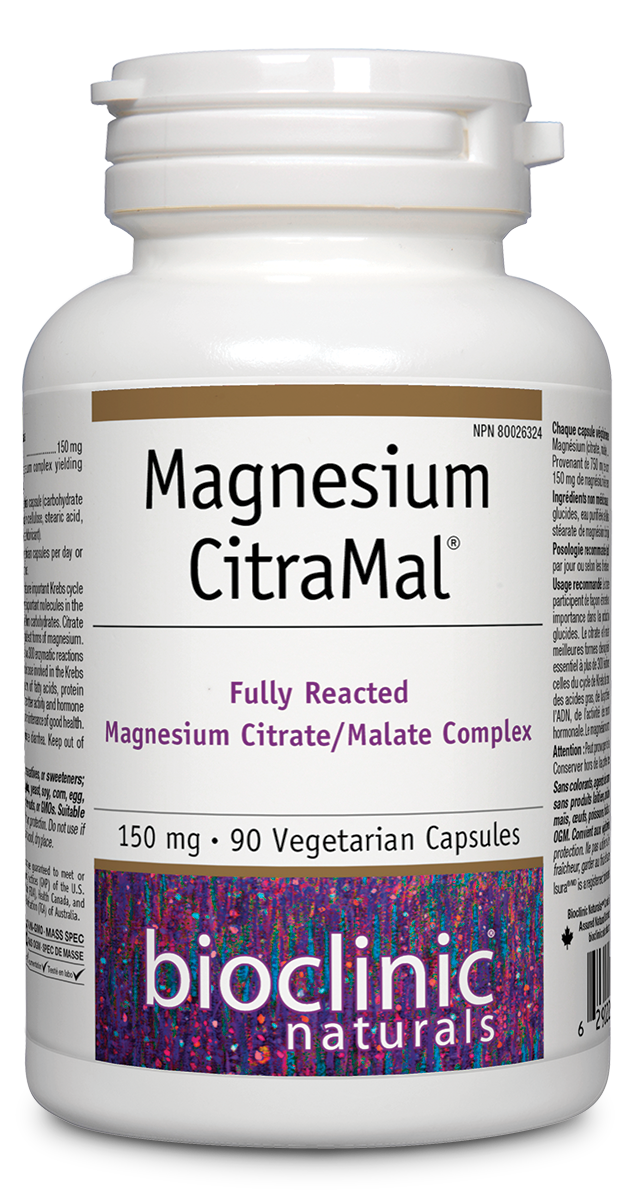
Fully Reacted
150 mg
90 Vegetarian Capsules ( SKU: 9486, NPN: 80026324 )
Medicinal Ingredients
| Each Vegetarian Capsule Contains: | |
| Magnesium (Citrate, Malate) | 150 mg |
| Sourced from 750 mg of magnesium complex yielding 150 mg elemental magnesium. | |
Non-Medicinal Ingredients
Vegetarian capsule (carbohydrate gum, purified water), microcrystalline cellulose, stearic acid, vegetable grade magnesium stearate (lubricant).
Dosage:
Recommended Adult Dose: 3 vegetarian capsules per day or as directed by a health care practitioner.
Warnings:
Some people may experience diarrhea. Keep out of reach of children.
Allergens:
Contains no artificial colours, preservatives, or sweeteners; no dairy, starch, sugar, wheat, gluten, yeast, soy, corn, egg, fish, shellfish, animal products, tree nuts, or GMOs. Suitable for vegetarians/vegans. Sealed for your protection. Do not use if seal is broken. For freshness, store in a cool, dry place.
